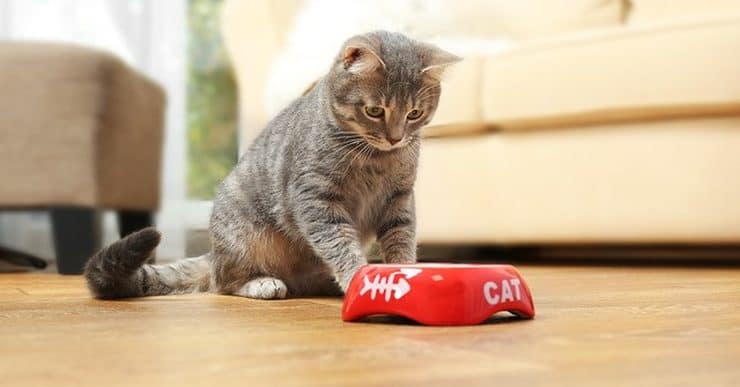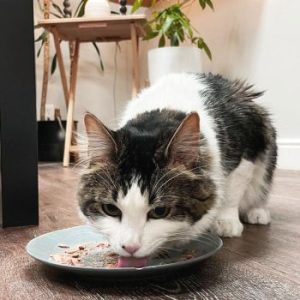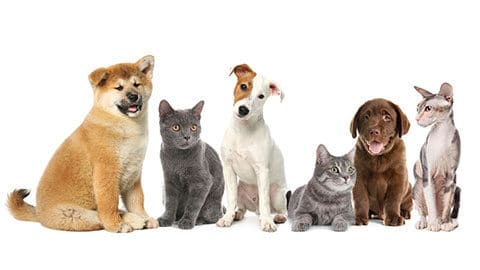
Why Your Cat is a Fussy Eater
Brought to You by Weruva
Cats are commonly thought to be fussy eaters, which should not be true if you’re feeding your cat a nice wet meal twice a day. Which is how you should be feeding an obligate carnivore. (Please do not even get me started on the topic of feeding dry food left out in a bowl all day (which I call “kitty krack” which they can get “hooked” on, but cats were not intended by nature to eat highly processed carbohydrates and graze on them around the clock.)
However, if you’re feeding a nice quality wet food and your kitty is a reluctant eater it can drive you around the bend trying to get them to show some enthusiasm at mealtime. You need to do something about it — for their sake as well as your own! Here are some reasons a cat may be picky about their food, with tips on how to manage the situation.
Underlying Health issues
Having an appetite is generally a sign of good health in any creature — so losing a desire to eat can be a sign of a physical problem in a cat who has been eating well previously. In fact, a change in a cat’s eating or elimination habits may be the first (and only) way you may be aware that something is not right with them.
Solution? Call your veterinarian and make an appointment! Inappetence (as it is technically known) is not something to ignore. It could be a symptom of a medical problem that needs treatment.
Dental Pain
Dental problems — loose or broken teeth, and/or gums that are inflamed or infected can make it painful or awkward for cats to eat. Since it is difficult for most people to open their cat’s mouth to look in — and since most of us don’t really know what we’d be looking for anyway! — this requires a vet visit. If your cat paws at her face, or there is a foul odor on her breath (indicative of dental disease), those are further clues that your cat isn’t eating because she cannot chew or it just hurts too much.
Solution? Call the vet, make an appointment. Be prepared to leave your kitty for a dental evaluation or treatment, which generally requires anesthesia.

Some cats have an especially sensitive sense of taste and smell. For cats who eat well at some meals and other times do not eat at all, it may be because they are personally quite particular about the flavors and textures of their food.
Solution? Offer a variety of foods to these kitties but buy only limited amounts of any one food until you find out what she likes. Try different styles of cat food. Pate? Shreds in gravy? Which protein source does your kitty prefer? Note which styles of food your cat gobbles up vs. those she turns her nose up at. You can also try warming up wet food to bring out the aroma.
Emotional Stress
Some cats can become stressed or anxious for reasons that are not even apparent to you. New people and other pets joining the household can be a huge disruptor of a cat feeling safe and relaxed — which she needs to be to feel safe and relaxed at her food dish. All it takes is a change in their environment or routine. This can cause them to lose their appetite or become picky about their food.
Solution? Learn what elements in any cat’s life can be stressors. Make changes to reduce stress and anxiety by creating an optimal feline environment. Cats like predictability so try to stick to a feeding schedule. Keep in mind that if you are stressed it will affect your cat, so take good care of both of yourselves!
—Tracie Hotchner
(Have a comment? Share it on Facebook.)

